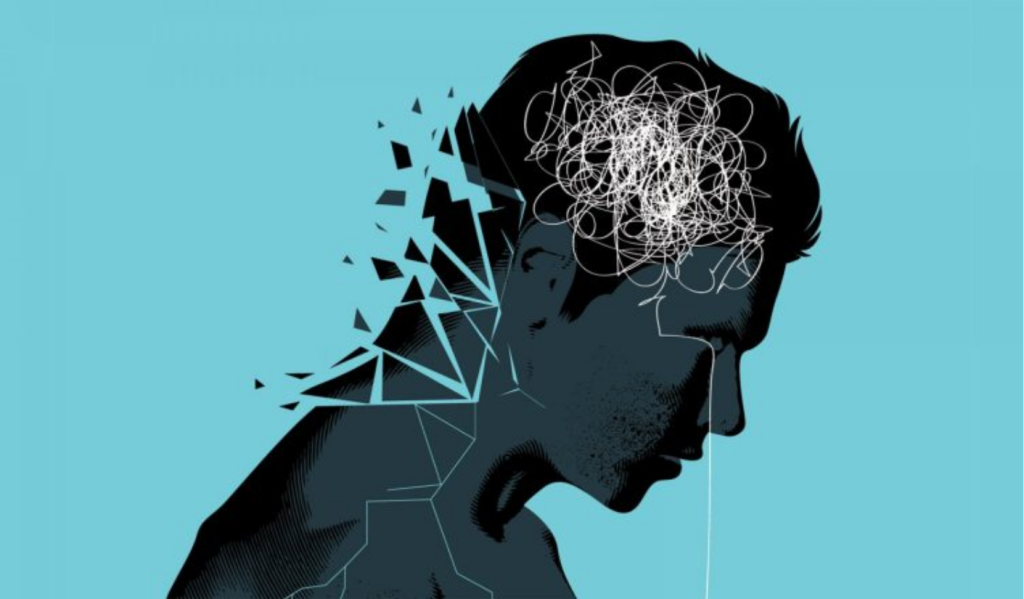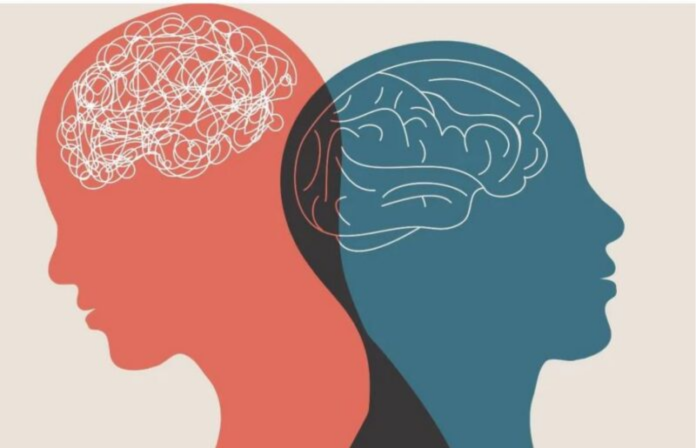By Sebi Alla
G.T. stayed for two weeks at the Psychiatric Hospital in Tirana with a diagnosis of ‘Chronic Tic’, identified since childhood under the DSM-IV-TR code (primarily congenital mental health issues). Treatment with medications, some given in the hospital and others bought from pharmacies, significantly improved his condition. The psychiatrist advised the family to obtain four types of medication, three of which were on the reimbursable drugs list. Six months later, G.T. exhibited symptoms similar to those before his hospitalization. The only practical way to keep him somewhat stable was to purchase the recommended medications from pharmacies, costing up to 8,000 Albanian LEK per month. This is just one example among thousands of patients suffering from the poor quality of medicines, where the ‘solution out of necessity’ is to buy drugs from pharmacies, not for a short period, but permanently.

The Long List
A psychiatrist, holding a bunch of medications, told Faktoje.al that most of these medicines are of low quality and lose effectiveness when used long-term, especially by chronic patients. Speaking anonymously, the psychiatrist working in a mental health center emphasized repeatedly that the reimbursed drugs (13 types, including two Serbian-made and others locally produced) are particularly poor in quality. This often causes patients with mental health conditions to experience severe crises, sometimes even leading to a change in their diagnosis. Similar issues exist with hospital medications, which contribute to longer hospital stays and slower recovery according to medical protocols.
Reimbursement, but lacking quality?!
There are 1,366 types of medicines included in the reimbursement list, with some designated for mental health conditions, either fully reimbursed or reimbursed up to 50 percent. Despite the growing range of reimbursed medications over the years, concerns about their quality remain, primarily raised by doctors and relatives of patients diagnosed with mental health issues.
An analysis of the reimbursed medicines list shows that while the drug names appear reputable, the brand names (manufacturers) are not from the EU, the USA, or Canada. Most are domestically produced, followed by manufacturers from Turkey and Serbia.
‘Since 2013, when medicine prices dropped by nearly 50%, their quality has inevitably decreased because large pharmaceutical companies could not sustain such cuts. Psychiatric medications offered by the state through the reimbursement scheme have unfortunately proven ineffective’, said Dr. Taulant Pengili, psychiatrist and head of the Addiction Department at the Italian Salus Hospital in Tirana, in an interview with Faktoje.al. Psychiatrist and psychotherapist Neli Demi also told Faktoje.al, ‘The pharmaceutical sector, as well as the relationship between the state and medicine producers or importers, needs a quality reform that places the best interests of citizens at its core, rather than those of producers or monopolistic drug wholesalers’.
Faktoje.al sent specific questions to the Ministry of Health regarding the effectiveness of reimbursed mental health medications but had not received a response by the time of publication.
The Problem
Mental health in Albania continues to be a serious concern, especially with the growing number of patients. ‘Although there is no precise study on the exact number of people suffering from mental health issues, it is estimated that 1 in 5 people have shown psychiatric symptoms at least once’, Dr. Taulant Pengili told Faktoje.al.

Anxiety, a growing concern among young people
The Together for Life Center has carried out several studies on anxiety and depression, two of the most common mental disorders in the community, often used as indicators to track mental health trends and distribution. ‘In Albania, there have been some efforts to monitor the prevalence of depression among different population groups. However, the results from various surveys and polls are not standardized or comparable, making it difficult to measure trends over time or differences between age groups’, the report states. Psychiatrist Taulant Pengili lists anxiety disorders as the most common conditions treated by psychiatrists and psychologists. ‘The most affected age group is 15 to 30 years old, but recent studies indicate an earlier onset, from preadolescence to older ages’, Pengili explains. He adds that for many years, these disorders were often treated by family doctors, but it has recently become evident that anxiety often does not appear in its classical form and that treatment is now the responsibility of mental health professionals.
WHO Raises Alarm
A recent World Health Organization (WHO) report focusing on the European region highlights that approximately 17% of the population live with a mental health condition. Although Albania is not specifically included in this study, the report notes that overall 1 in 6 people in the region live with a mental health disorder; 1 in 3 people with a mental health condition do not receive the treatment they need; and 1 in 4 people with psychosis receive no formal treatment or care. Additionally, the report states that over 150,000 people die by suicide annually, making it the leading cause of death among young people aged 15 to 29.
Albania lacks residential psychiatric services
In terms of diagnosing, identifying, and treating mental health patients, Albania is behind. Patients are initially diagnosed, and in cases involving aggression or problematic behavior towards family or community, doctors determine if psychiatric hospitalization is necessary. But what happens to these patients with severe mental health issues after discharge? ‘I believe that follow-up monitoring of patients discharged from psychiatric hospitals should be done by Community Mental Health Centers (CMHCs). Often, this is challenging because many patients do not regularly attend these centers after leaving the hospital,’ says psychiatrist Dr. Taulant Pengili. ‘To address this problem, the capacity of psychiatric hospitals must be increased, along with the establishment of residential psychiatric facilities for treating patients after discharge, since many do not stay long enough in hospitals due to limited capacity’, Pengili adds. The Albanian health system has four psychiatric hospitals, in Elbasan, Vlorë, QSUNT in Tirana, and Shkodër, with a total capacity of 600 to 650 beds.
The Report
The Ombudsman’s 2024 report highlights serious issues in the country’s four psychiatric hospitals. ‘Inadequate infrastructure: Psychiatric hospitals in Vlorë, Elbasan, Shkodër, and Tirana continue to face significant structural deficiencies impacting patient treatment and recovery. Lack of rehabilitative activities: Some institutions, including ‘Xhavit Gjata’ hospital in Tirana and ‘Sadik Dinçi’ in Elbasan, lack facilities for occupational skills development and rehabilitation activities’, the report states. It also reveals a shortage of qualified doctors, nurses, and support staff.
Living with the Illness
In diagnosing mental health patients, two groups are distinguished: those born with such conditions and others who have experienced various psycho-physical traumas. Stigma and fear of admitting mental health problems at their early signs are recognized by specialists as major issues that need to be addressed not only by institutions but also by society itself. ‘Public awareness campaigns on mental health must be implemented, starting with educational institutions and extending to all workplaces where mental health professionals are often absent, making it very difficult to address and resolve these problems’, emphasizes Dr. Taulant Pengili.
Diagnosis and Kemp (care allowance or disability pension), nothing more

The state protocol for mental health patients has remained unchanged for at least 40 years. Any patient with mental health problems, whether detected early in life or later, first visits a family doctor who, upon noticing abnormalities, recommends seeing a specialist psychiatrist. After diagnosis, it is recommended that individuals with various conditions undergo the ‘kemp’ process, during which a commission decides whether the person qualifies for ‘kemp’ and if the severity of the illness requires a guardian.
On average, those in the kemp program for mental health receive 10,500 LEK per month, as do their guardians, typically family members. Subsequent healthcare presents challenges for patients who spend a limited time hospitalized, usually up to three weeks, in psychiatric hospitals. Once considered cured for their diagnosis, they are discharged with recommendations to maintain contact with state mental health centers. This is the final step, which ideally should not be so, because if a patient who was hospitalized shows signs of aggression or severe symptoms again, they are often not readmitted due to a lack of hospital capacity.
Response
‘The most effective solution to this issue would be to build a comprehensive network of preventive, treatment (ambulatory or hospital), rehabilitative, integrative, and residential services. Developing only one aspect of these services, whether hospital-based or community-based, would not be enough to meet the needs and address the diverse problems of people with chronic mental health conditions and their families. This service network must also be properly distributed in proportion to the population to enable equal access to quality services for all’, states psychiatrist and psychotherapist Neli Demi.
Go private…!
When the illness progresses and aggression increases, patients may be admitted for a certain period to psychiatric hospitals. But where do patients go afterward? Hospitals typically keep patients under treatment for up to three weeks, and in rare cases, longer. After hospital treatment, patients are returned to their families, but at different times, despite medication, they may exhibit aggression toward others or even self-harm seriously. Psychiatric hospitals refuse admissions due to limited capacity and the fact that patients treated a few months earlier cannot be readmitted. ‘There is a need for proper state-run residential centers to treat patients with severe mental health problems. This service is currently not provided by the state’, says another psychiatrist, speaking anonymously to Faktoje.al. According to him, 4 to 5 private centers offer this service, but at a high cost that is unaffordable for many Albanian families, with monthly treatment fees ranging from 800 to 1300 euros.
This article was prepared with support from the Friedrich Ebert Foundation in Tirana.











